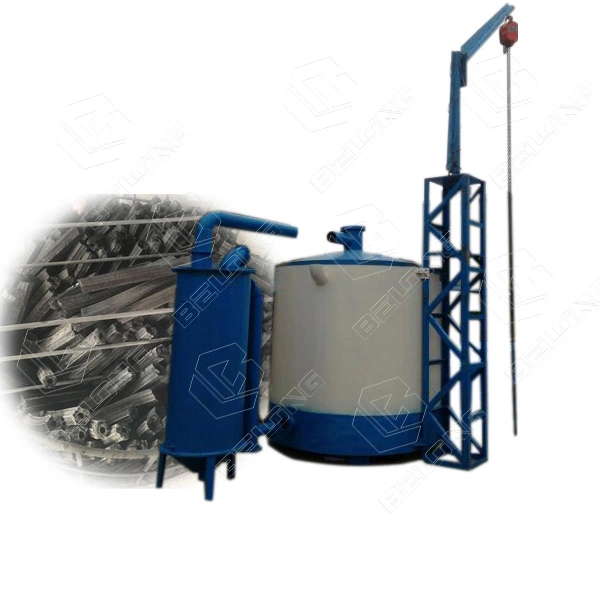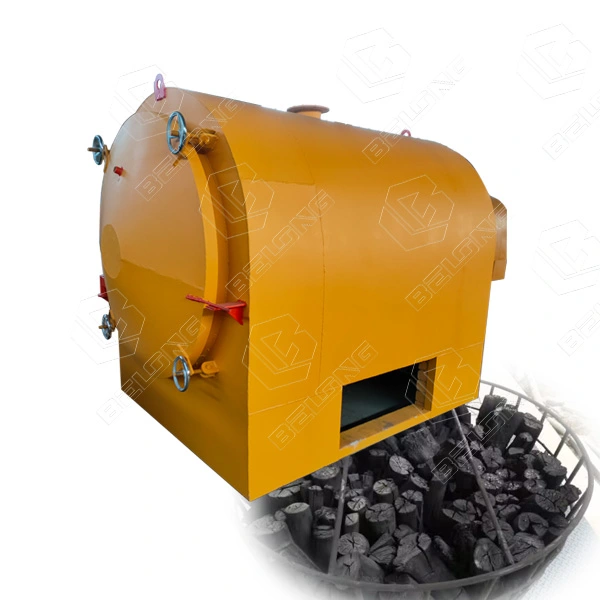A carbonizing furnace is a machine that converts organic materials into carbon by heating them in an oxygen-free environment. Carbonizing furnaces are used for various industrial applications, such as producing charcoal, coke, activated carbon, carbon fiber, and carbon nanotubes. Carbonizing furnaces can have different designs and operating parameters depending on the type and quality of the feedstock, the desired product characteristics, and the environmental regulations.
The carbonization process is a crucial step in charcoal production line because it is responsible for converting raw materials, such as wood, sawdust, or agricultural waste, into high-quality charcoal.
The carbonization process is important in charcoal production because:
- Increases the carbon content: The carbonization process increases the carbon content of the raw materials, which is essential for producing high-quality charcoal. The higher the carbon content, the better the quality of the charcoal.
- Removes impurities: The process removes impurities such as water, volatile organic compounds, and other contaminants that can affect the quality of the final product.
- Improves combustion efficiency: Charcoal produced through carbonization burns more efficiently than raw materials, making it an ideal fuel for cooking, heating, and other applications.
- Reduces environmental impact: The carbonization process is a more environmentally friendly way of producing charcoal than traditional methods such as open-air burning. It reduces greenhouse gas emissions and helps to conserve natural resources.


